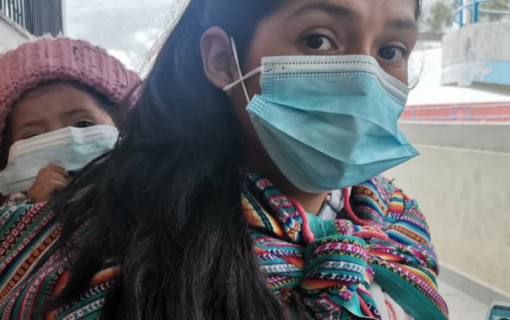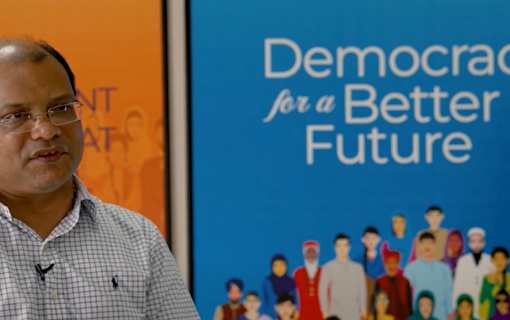Republic of Montenegro: Voter Awareness Assessment and Legal Review, Nov 1997-Feb 1998
EXECUTIVE SUMMARY
Voter Awareness Assessment
On 15 November 1997, IFES sent a three-person team to the Republic of Montenegro to conduct a Voter Awareness Assessment with the following objectives:
1. Analyze the post-presidential election environment, particularly the impact of subsequent political maneuvering by republican and federal authorities regarding the legitimacy of the election results on the prospects for a peaceful transition of power and the conduct of minimally free and fair parliamentary elections in the Spring of 1998;
2. Assess on-going weaknesses in Montenegro's electoral system which threaten to undermine its actual and perceived efficiency, transparency, and integrity;
3. Determine the changing informational and educational needs of the country's citizenry, including traditionally disadvantaged groups such as ethnic minorities, women, youth, and rural dwellers in an increasingly competitive political environment and in the midst of substantive electoral reforms;
4. Identify opportunities for constructive cooperation leading into the parliamentary election cycle and in the longer term.
During the three-week mission, IFES team members held a series of consultations with more than 50 government officials, election administrators, political party leaders, student organizers, NGO activists, and media representatives in the capital city of Podgorica and coastal towns of Budva, and Ulcinj. The team was provided with considerable access to opinion leaders and decision-makers at the highest levels of Government and administrative and political structures. The reception of the IFES mission in Montenegro proved to be the antithesis of its experience in Serbia. Contrary to the environment of suspicion and antagonism under which IFES advisors worked in Serbia, their counterparts in Montenegro were able to engage in a constructive dialogue both at official and informal levels and in an atmosphere of relative transparency.
The country's government, Assembly, and political parties should be commended for their commitment to bring the country's political and electoral legislation and practice into conformity with democratic norms. Such efforts have been endorsed and should be tangibly supported -- through the provision of systems-oriented technical assistance -- by the international community. At the same time, it should be recognized that the very real political pressures to conduct new legislative elections at the national and municipal levels in the Spring significantly compresses the timeframe in which modifications to existing laws can be thoroughly considered and aired in public debate. Under such circumstances, the Inter-Party Working Group drafting legislation should focus its immediate efforts on priority issues which proved to be problematic during recent presidential elections and which may have contributed to the perception, if not the threat, of fraud. It should further commit itself to further legal and technical refinements based on a comprehensive analysis, in cooperation with legal scholars and election practitioners, of the presidential, parliamentary, and municipal election experiences.
Among the electoral issues identified by the team and priorities for consideration by the Working Group are:
· An absence of clarity and detail throughout legislation governing campaigns and elections which undermines, if not precludes, the correct and consistent interpretation of law, efficient and uniform administration of elections, and equitable adjudication of grievances;
· The exclusion of practitioners, among them legal scholars, election officials, and journalists from the process of reforming legislation On elections, voter registries, campaign financing, and public information;
· The considerable diffusion of election administrative responsibilities which leads to confusion among voters and political participants, disagreements between state structures, and an ineffective administrative system;
· The absence of a central Register of Electors, a methodical and reliable means of updating and correcting voter registries at the municipal level, and a mechanism for review by political parties which has resulted in the disenfranchisement of thousands of voters;
· The adoption of a system of representation which responds to the right of representation of the Albanian minority within Montenegro, such as an adjusted PR system with a lower threshold for legislative mandates, a schema for constituency delimitation or other alternative systems;
· The question of whether political parties registered solely at the federal level have the right to nominate candidates for republican, municipal, and local offices in Montenegro and the Federal Parliament of Yugoslavia or only the latter;
· Unrealistic timetables established within the law for campaign, election, and adjudication related deadlines;
· The inability of polling site boards to efficiently handle the volume of voters envisioned in the law, ie. as many as 2500 people, and assure the security of the ballot box and transparency of the commission's work within the prescribed voting hours;
· The absence of provisions within the law on the rights and responsibilities of international and domestic observers;
· Inadequate ballot security measures with respect to the printing, transport, distribution, storage, and validation of ballots and during voting outside of the polling premises;
· The dearth of a campaign finance regulatory system designed not to discourage political activity but to encourage compliance and public disclosure, as well as inadequate limitations on the use of public office and resources for overtly political purposes;
· Inequitable treatment of candidates and political parties with respect to state-subsidized media time/space, conditions for paid advertising, and news coverage.









